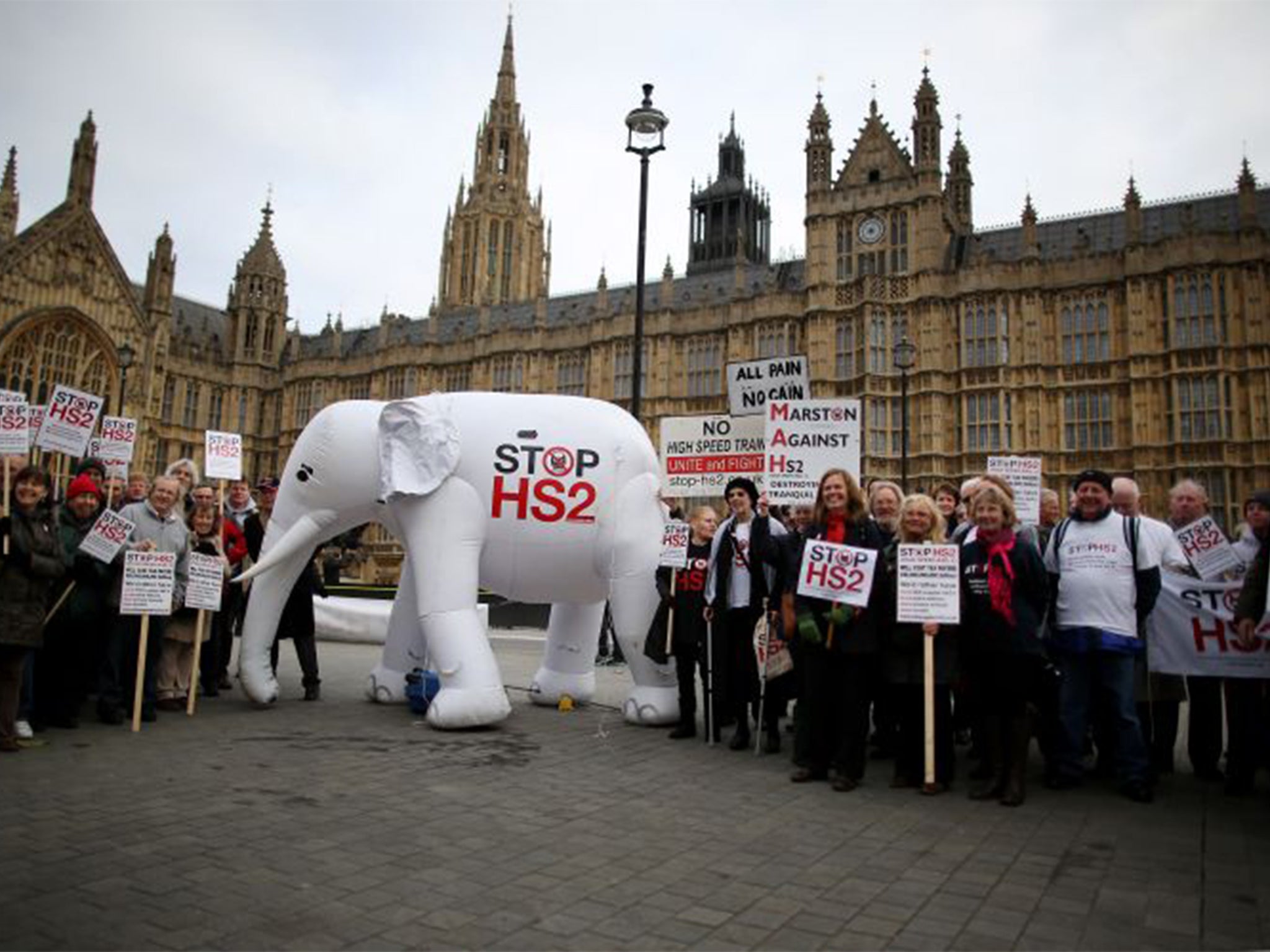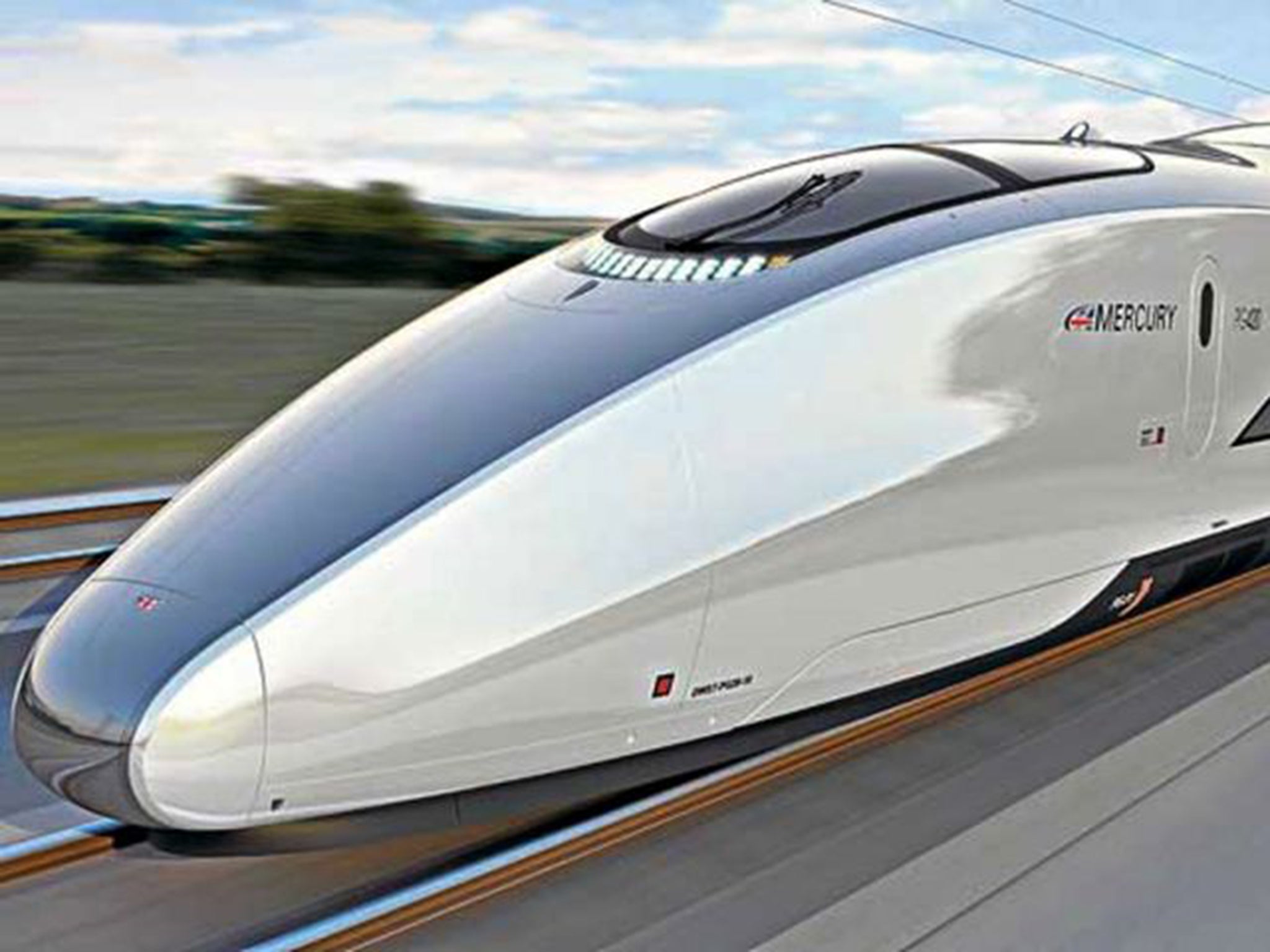HS2: Cost of London-to-Birmingham leg of proposed new railway a third higher than previously estimated
Exclusive: The link was forecast at £21.4bn at 2011 prices - it is now approaching £30bn

Your support helps us to tell the story
From reproductive rights to climate change to Big Tech, The Independent is on the ground when the story is developing. Whether it's investigating the financials of Elon Musk's pro-Trump PAC or producing our latest documentary, 'The A Word', which shines a light on the American women fighting for reproductive rights, we know how important it is to parse out the facts from the messaging.
At such a critical moment in US history, we need reporters on the ground. Your donation allows us to keep sending journalists to speak to both sides of the story.
The Independent is trusted by Americans across the entire political spectrum. And unlike many other quality news outlets, we choose not to lock Americans out of our reporting and analysis with paywalls. We believe quality journalism should be available to everyone, paid for by those who can afford it.
Your support makes all the difference.The cost of the London-to-Birmingham leg of Britain’s proposed new railway, High Speed Two (HS2), is approaching £30bn – a third higher than previously estimated.
The team behind the project, HS2 Ltd, has been asked to submit updated costs of the railway’s first phase to the Treasury ahead of the Comprehensive Spending Review (CSR) later this month.
Previously, the London-to-Birmingham link was forecast at £21.4bn, but this was at 2011 prices. The new estimate is designed to reflect better what will have been spent at real prices when the first phase starts carrying passengers at speeds of up to 250mph in 2026. This figure is understood to be in the high twenties of billions.
Known as the “out-turn cost”, it takes account of the rising cost of construction which is being inflated by shortages of building materials and skilled engineering and project management staff. This construction inflation is higher than the general RPI and CPI measurements of inflation, which partly explains the huge increase in the price tag.
It is understood that the cost of the entire railway, including the trains and the phase two link from Birmingham to Leeds and Manchester, is likely to be £70bn to £80bn, up from £50bn in 2011 prices.

The project’s supporters argue the revised cost does not mean the budget has increased, because it is the same amount adjusted to take account of economic changes as the project develops. The Department for Transport (DfT) has also claimed that every £1 of public money spent on HS2 will provide £2 of benefit to the wider UK economy, and many people working on HS2 believe this to be a conservative estimate that plays down the railway’s boost to the country.
But anti-HS2 campaigners are furious at both the amount of public money being spent on the railway and the fact that it will carve through the English countryside. HS2 has already been hit by cost over-runs: in 2013, HS2 Ltd admitted it had got its sums wrong, increasing phase one’s budget alone by more than £5bn.
A spokesman for the Stop HS2 campaign said that the new price estimate proved the project is a “white elephant”. Ministers are already under pressure from Conservative backbenchers whose constituencies are located along the HS2 route to axe the project. They are likely to vote against a bill authorising HS2’s construction when it reaches the floor of the House of Commons next year.
A source who has worked on HS2 added the project’s costs means other transport projects will be squeezed during the 2020s. The source added: “The DfT is not a protected department [from spending cuts]. Somebody’s going to have to find £25bn if HS2 ends up costing around £75bn - and that means roads or rail will have to be cut.”
The source added it is “a logical planning assumption that HS2 will be flogged” to the private sector to run it shortly after the second phase is completed in the 2030s. It is understood there have been some informal discussions at HS2 Ltd on future ownership, which could see foreign companies run the railway.
Industry sources believe HS2 will ultimately be sold to the private sector in concessions lasting around 30 years, as happened at HS1, which links London to the Channel Tunnel. Two Canadian pension funds, Borealis Infrastructure and the Ontario Teachers’ Pension Plan, paid £2.1bn in 2010 to run HS1 until 2040.
HS2 is a much longer line and could be sold in up to three separate concessions, another source suggested, which could help recoup some of the project’s massive cost.
The Stop HS2 spokesman said: “These figures show that since HS2 was first announced in 2010, there has been a near doubling of the costs, and with trains not due to run for over another decade, who knows where the cost of this white elephant will end up?
“A responsible chancellor would be asking serious questions about whether it is really worth it, but instead Mr Osborne is cooking the books to invent benefits which simply aren’t there to make HS2 look more palatable, at the same time as drawing up plans to flog it off the private sector at a fraction of the cost.
“If HS2 was really worth it, investors would be lining up to build it. The fact they are not shows this is nothing more than a vanity project, the costs of which will continue to spiral.”
A spokesman for HS2 said: “HS2 Ltd cannot comment on speculation around the content or outcomes of the spending review.”
Join our commenting forum
Join thought-provoking conversations, follow other Independent readers and see their replies
Comments